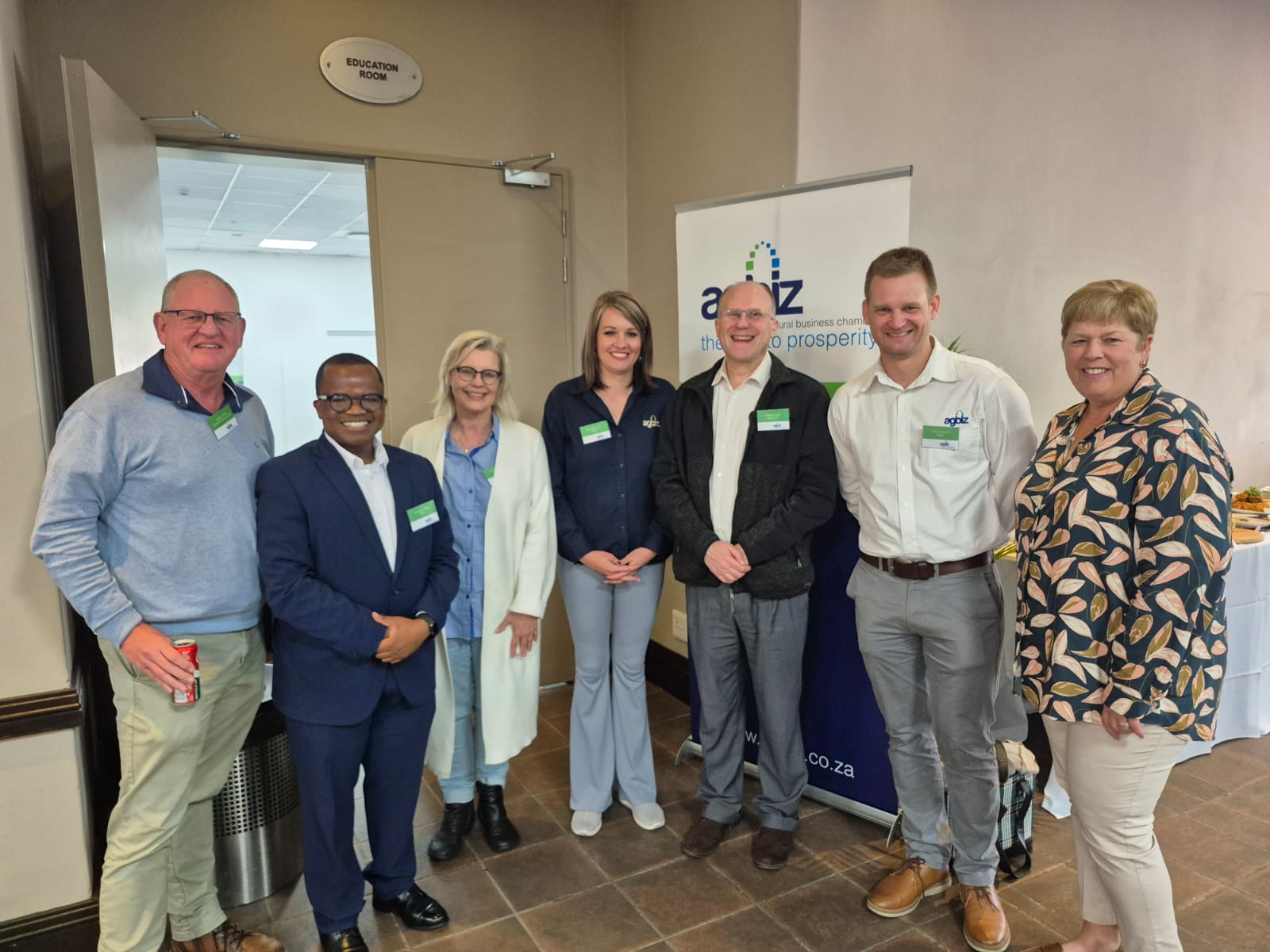
BLOG
Notes from Engagements with KwaZulu-Natal Farmers and Agribusinesses

On September 29, Agbiz had the opportunity to share our views and listen to representatives of agribusinesses from the KwaZulu-Natal province of South Africa.
The general sentiment from folks in the region was that the agricultural conditions are favourable, which is a picture we painted from a national perspective in our previous letter.
However, one aspect that got many people in the room engaged was the ongoing challenge of the foot-and-mouth disease among dairy producers in the province.
Representatives from various banks commented on the cost burden faced by some of their clients, and dairy farmers' representatives painted a picture based on their firsthand observations of the challenges.
This was a valuable input because many of us in central South Africa and the northern regions typically think of foot-and-mouth disease from the perspective of beef producers; rarely do we consider its cost burden on dairy farmers as well.
Indeed, for beef producers, the central issue is the temporary closure of various export markets, while farmers must continue to feed the cattle, thereby significantly increasing costs.
One question that also arose was about the reasons South Africa is not on full-scale vaccination against foot-and-mouth disease, especially in regions such as KwaZulu-Natal that are prone to outbreaks.
We also learned more about the constraints on vaccination supplies in certain areas.
These aren't new issues, and we have discussed them at length in this letter; however, hearing about the picture of KwaZulu-Natal from the affected individuals was illuminating.
What one takes away from the conversation is that South Africa remains at a critical point regarding the control of foot-and-mouth disease and various animal diseases. This underscores our continuous emphasis on the need to strengthen the country's biosecurity.
We need not only to ease regulations for importing and registering the various products farmers require, but also to increase investment in vaccine manufacturing. We all know of the difficulties at the Agricultural Research Council and the Onderstepoort Biological Products (OBP), a state-owned vaccine manufacturer. The work to revive these institutions is underway.
Still, the partnership with the private sector must be the path forward. We must ensure that entities capable of producing critical vaccines for our livestock industry receive the necessary government support to partner and roll out the measures needed to support the sector. We no longer need just one centre of manufacturing, but rather multiple centres where capabilities exist. Thereafter, also nudge the Department of Public Works and Infrastructure to assist with fencing to ensure the strict control of animal movement in the country.
The livestock industry is a pillar of South Africa's farming economy, accounting for approximately half of the country's farming fortunes. Therefore, ensuring its resilience is vital, and that starts with addressing foot-and-mouth disease and other diseases head-on.
Wandile Sihlobo is the chief economist of the Agricultural Business Chamber of South Africa.

0 COMMENTS
LEAVE A COMMENT